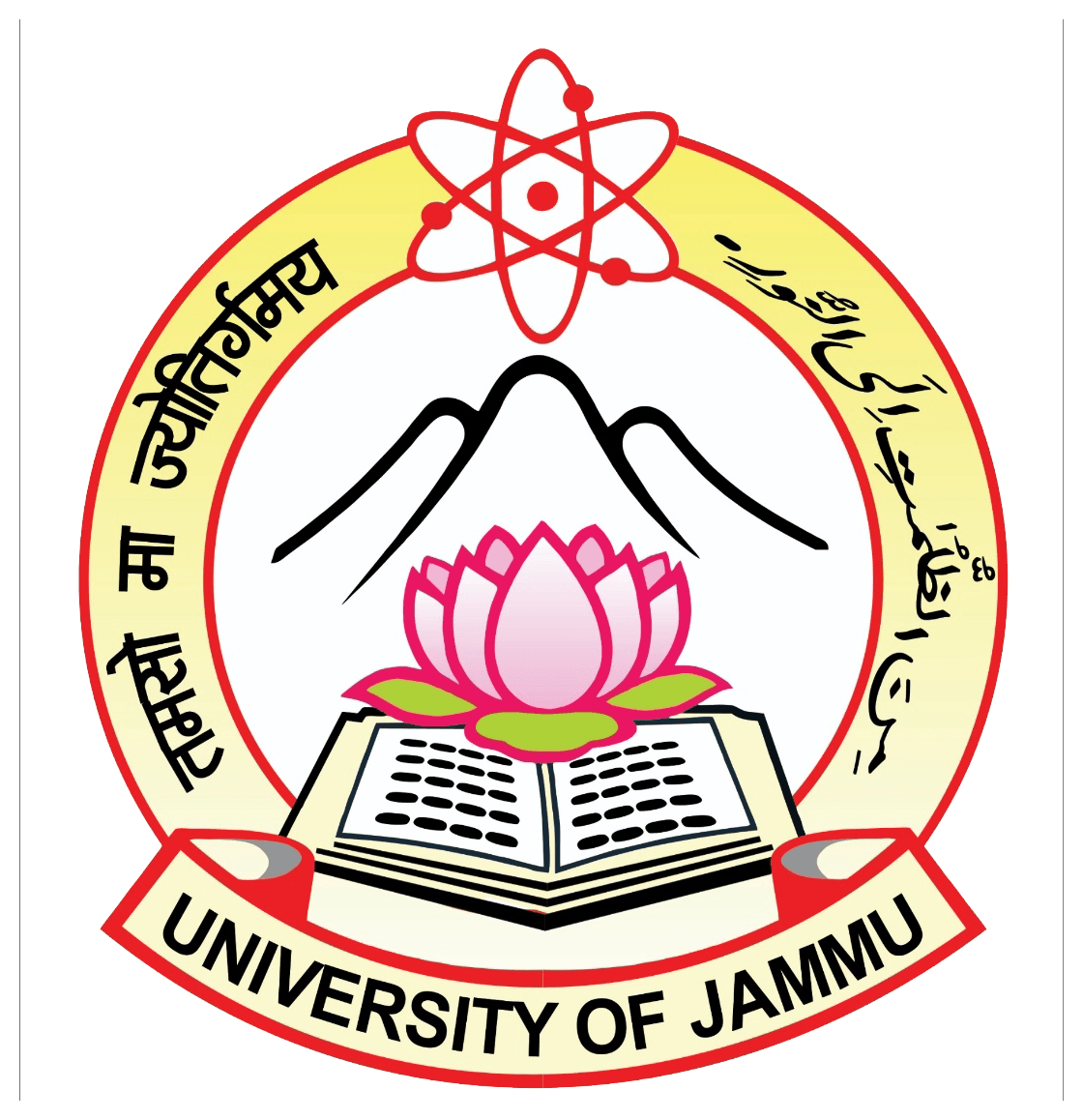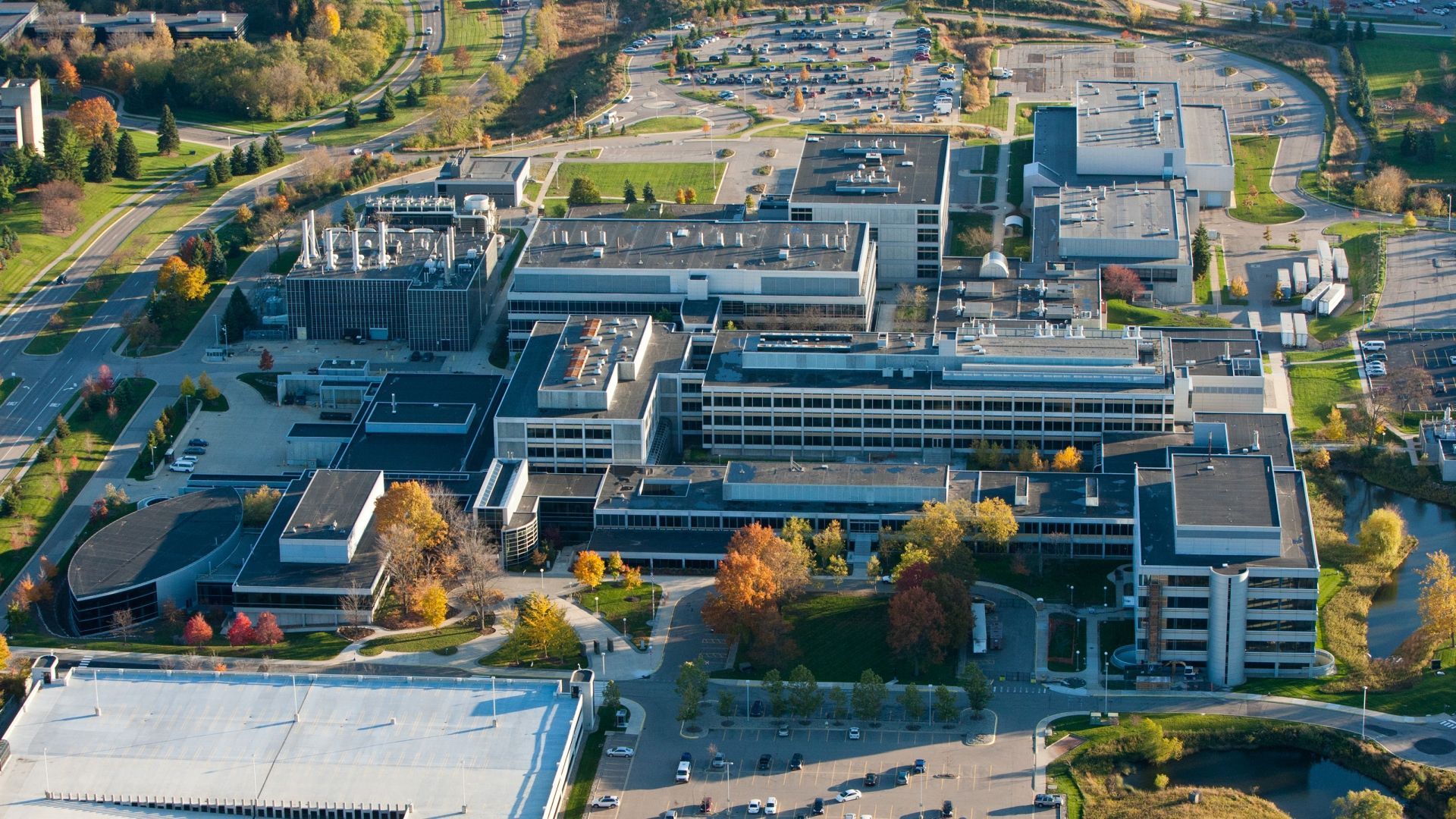
University of Jammu

Prof. Umesh Rai (Vice-Chancellor)
Summary
The University of Jammu, often called Jammu University (JU), was set up in 1969 after splitting from the University of Jammu and Kashmir. It is located at the foothills of Trikuta, near the Tawi River, and has an A+ grade from the National Assessment and Accreditation Council (NAAC). It is also the first university in India to get ISO-9001 certification. The main campus on Baba Saheb Ambedkar Road has many facilities, including teaching departments, hostels, a health centre, and other amenities. Another campus spread over 10.5 acres, has residential quarters and hostels for boys.
Jammu University offers many undergraduate, postgraduate, and doctoral programmes through its 36 departments and 11 faculties. These cover fields like life sciences, arts, sciences, education, business studies, law, social sciences, medicine, engineering, and music and fine arts. The university also manages seven off-site campuses in Bhaderwah, Kishtwar, Poonch, Reasi, Ramnagar, Kathua, and Udhampur, and affiliates 157 colleges. The faculties include various subjects such as biotechnology, environmental science, journalism, commerce, and regional studies, aiming to provide a wide-ranging education and research opportunities.
Ranked among the top institutions in India, the University of Jammu is dedicated to achieving high standards in teaching, research, and knowledge sharing. It focuses on students' all-round development through academics, sports, extracurricular activities, and social involvement. The university values the preservation and integration of cultural diversity and works to significantly contribute to the socio-economic growth of the region and the country. Through its various programmes and efforts, Jammu University remains focused on advancing knowledge and promoting spiritual and material growth in a culturally rich setting.
History
The University of Jammu, commonly known as Jammu University (JU), has a rich history that began in 1969. It was established through the Jammu and Kashmir Universities Act, which split the University of Jammu and Kashmir into two separate institutions: the University of Jammu and the University of Kashmir. This division aimed to cater more effectively to the educational needs of the respective regions.
Located at the foothills of Trikuta and near the Tawi River, Jammu University is in a scenic and tranquil setting. This location is significant as it provides a peaceful environment for learning and research. The university's main campus is situated on Baba Saheb Ambedkar Road, standing at an altitude of 1030 feet above sea level. This campus houses various facilities, including teaching departments, hostels, a health centre, a guest house, a post office, a bank, a bookshop, and several cafeterias and canteens. An older campus spread over 10.5 acres and located 4 kilometres from the main campus, includes residential quarters for staff and three hostels for male students.
The establishment of Jammu University was a significant step in enhancing higher education in the Jammu region. The university's mission from the outset has been to provide quality education and to foster the all-round development of its students. It strives to impart knowledge that is both academically robust and relevant to the socio-economic needs of the region.
Jammu University was the first in India to receive ISO-9001 certification, highlighting its commitment to maintaining high standards in education and administration. The university has been accredited with an A+ grade by the National Assessment and Accreditation Council (NAAC), further emphasising its dedication to excellence.
The university has expanded significantly since its inception. It now includes seven off-site campuses located in Bhaderwah, Kishtwar, Poonch, Reasi, Ramnagar, Kathua, and Udhampur. These campuses extend the reach of the university, providing more students with access to higher education. Additionally, Jammu University affiliates 157 colleges, ensuring a wide network of educational institutions under its purview.
Academically, the university offers a broad range of programmes at the undergraduate, postgraduate, and doctoral levels. It has 36 departments and 11 faculties, covering disciplines such as life sciences, arts, sciences, education, business studies, law, social sciences, medicine, engineering, and music and fine arts. This wide array of subjects allows students to pursue diverse fields of study and research, catering to various interests and career aspirations.
The faculties include several specialised departments. For instance, the Faculty of Life Sciences encompasses the School of Biotechnology, the Institute of Human Genetics, and departments like Botany, Environmental Science, Zoology, Biochemistry, and Microbiology. The Faculty of Arts/Oriental Languages includes departments such as Buddhist Studies, Dogri, English, Hindi, Punjabi, Sanskrit, Urdu, and Journalism and Media Studies. Other faculties cover areas like sciences, education, business studies, mathematical sciences, law, social sciences, medicine, engineering, and music and fine arts.
Jammu University is governed by the Lieutenant Governor of Jammu and Kashmir Union Territory, who serves as the Chancellor. The university's administration works towards achieving high standards in teaching, research, and knowledge transfer, aiming to make significant contributions to the socio-economic development of the region and the country.
The university promotes holistic development, encouraging students to engage in sports, extracurricular activities, and socially relevant projects. It also values cultural diversity, striving to integrate and preserve the rich cultural heritage of the region and the country.
Overall, the University of Jammu stands as a beacon of higher education in the region. Its commitment to excellence, coupled with its extensive range of academic programmes and facilities, makes it a prominent institution dedicated to the advancement of knowledge and the overall development of its students. From its inception in 1969 to its current status as a leading university, Jammu University continues to play a pivotal role in shaping the future of higher education in the region.
Courses
The University of Jammu offers a wide range of courses across various disciplines, catering to the educational needs and career aspirations of its diverse student body. The university provides undergraduate, postgraduate, and doctoral programmes, ensuring comprehensive academic growth and professional development.
At the undergraduate level, the university offers Bachelor’s degrees in arts, sciences, commerce, business administration, law, education, and more. These programmes are designed to provide a strong foundation in the respective fields, equipping students with the necessary knowledge and skills for their future careers. For instance, students can pursue a Bachelor of Arts (BA) in subjects such as English, Hindi, and Political Science, or a Bachelor of Science (BSc) in areas like Physics, Chemistry, and Biotechnology. The Bachelor of Commerce (BCom) and Bachelor of Business Administration (BBA) programmes prepare students for careers in business and commerce.
Postgraduate programmes at Jammu University include Master’s degrees in a variety of disciplines. The Master of Arts (MA) courses cover subjects like English, Urdu, History, Sociology, and Political Science. The Master of Science (MSc) programmes include specialisations in Physics, Chemistry, Zoology, and Environmental Science. The university also offers professional postgraduate degrees such as the Master of Business Administration (MBA), Master of Commerce (MCom), and Master of Education (MEd). These programmes are aimed at providing advanced knowledge and practical skills to enhance career prospects and academic pursuits.
For those interested in research and academic careers, the University of Jammu offers doctoral programmes (PhD) in numerous disciplines. These programmes enable students to engage in in-depth research, contributing to the advancement of knowledge in their chosen fields. PhD programmes are available in areas such as Biotechnology, Botany, Zoology, English, Sociology, and Commerce, among others.
In addition to these, the university offers specialised courses through its various departments and institutes. For example, the School of Biotechnology and the Institute of Human Genetics offer cutting-edge programmes in their respective fields. The Department of Journalism and Media Studies provides courses aimed at preparing students for careers in media and communication.
Global MBA rankings
The University of Jammu ranked 219 in the 2024 Asian University Rankings.
Job integration rate
The University of Jammu has a 75% job integration rate. According to the University of Jammu NIRF report 2024, the median package offered during the MBA placements in 2023 was INR 7.12 LPA. Out of a total of 94 MBA students, 56 were placed, and 12 opted for further studies. Additionally, the median package for undergraduate 3-year courses stood at INR 4.96 LPA, while for postgraduate 2-year courses, it was INR 7.2 LPA during the 2023 placements.
General information
- University of Jammu| Wikipedia
- Jammu University: Courses, Fees, Admissions 2024| Shiksha
- University of Kashmir| University of Kashmir
- Jammu University: Courses, Fees, Admissions 2024|Collegedunia
- University of Jammu : Rankings, Fees & Courses Details| Top Universities
- University of Jammu | World University Rankings|Times Higher Education
- Jammu University Ranking and Analysis| AD Scientific Index
- Jammu University: Admission, Courses, Fees, Placements| Careers360
- University of Jammu| EduRank
Explore the latest data on Business, Industry Leaders and Influencers, Organizations, Education, and Investors to stay informed and ahead.

Prof. Umesh Rai (Vice-Chancellor)
